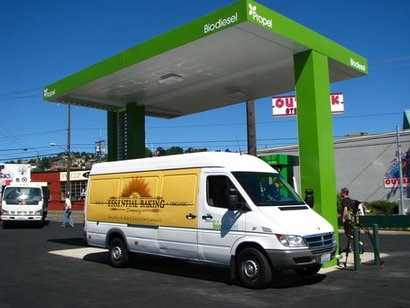
IEA Bioenergy is committed to advancing bioenergy technologies based on sustainable biomass feedstocks for a greener and sustainable future. With the world facing a worsening climate crisis and emerging energy security issues with fossil fuels, finding effective solutions to phase out fossil fuels in the transport sector is crucial, and IEA Bioenergy believes that biofuels offer a compelling option, in synergy with electrification.
The recently published reports from the IEA Bioenergy study “Assessment of Successes and Lessons Learned for Biofuels Deployment” highlight the potential of biofuels to drive significant market supply, replace fossil fuels, and combat global warming. The main target of the study was to identify key factors for technology successes and the best policy framework conditions for stimulating increased future markets for sustainable transport biofuels.
“The current production capacity of renewable fuels, together with planned and under construction projects, needs to grow by a factor of more than 5 to produce the renewable fuels (biofuels and e-fuels) that will be required worldwide by 2050” said Tomas Ekbom, Svebio (Sweden), Project Leader. “We need faster progress and learn lessons from biofuels deployment so far to support their further deployment in an efficient way.”
IEA Bioenergy says that biofuels present cost-competitive options to reduce greenhouse gas emissions in the road transport sector over the next decades to come. Their compatibility with existing fossil fuels infrastructure makes biofuels a practical and much needed immediate solution to replace fossil fuels in existing fleets.
While electric vehicles are making progress in several regions of the world, particularly for light duty vehicles, access to materials for large scale battery manufacturing and underdeveloped charging networks will challenge the speed of their widespread adoption. In the medium to longer term – with increased electrification of the road transport sector - the use of biofuels will shift to difficult-to-electrify sectors such as aviation and marine shipping.
While most current biofuels are produced from agricultural crops like sugar cane, corn, or oil-based crops, the focus is now moving to the use of biogenic waste, crop residues and non-food crops, many of which require advanced biofuel production technologies. Yet, at this point most advanced technologies are at an early stage of commercialisation and economics are still a challenge.
In order to sharply reduce fossil fuel consumption, IEA Bioenergy believes that we don’t have the luxury to abolish existing biofuel options and wait for new technologies to mature; restrictions on some (crop-based) biofuel feedstocks may have to be rethought, especially where they can be sustainably produced, with very low greenhouse gas emissions over their life cycle. The fact that biofuel options are and will continue to be region- and country-specific also needs to be recognised.
“Liquid biofuels like ethanol and biodiesel, that can directly replace fossil gasoline and diesel, offer mature, scalable alternatives for markets with dominating shares of combustion engine vehicles” added Heitor Cantarella, Agronomic Institute of Campinas (Brazil). “Driven by sustainability requirements in effective policies, these fuels have demonstrated low carbon footprints and limited impact on food production.”
For additional information:

